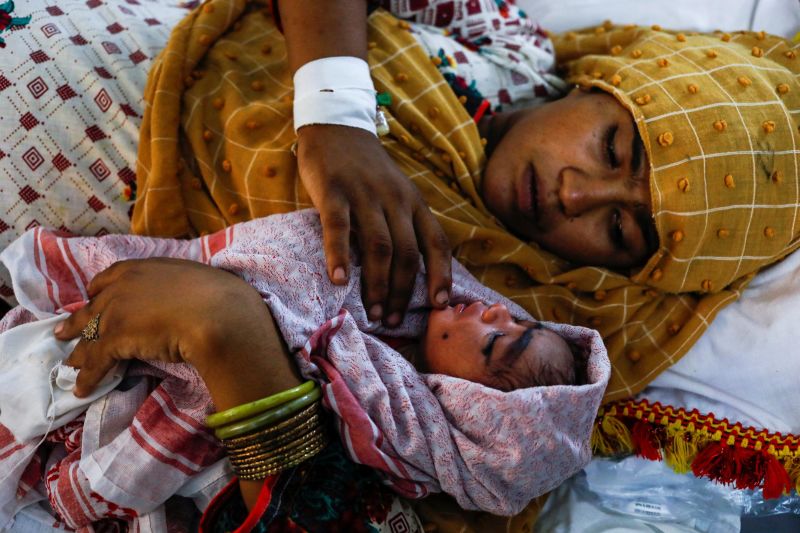Severe Flooding in Pakistan: A Humanitarian Crisis
Severe flooding has led to the tragic loss of more than 1,300 lives in Pakistan since mid-June, as reported by officials. By the end of August, over a third of the country was underwater, according to satellite images from the European Space Agency.
At least 33 million people have been affected by this disaster. Pakistan’s Minister for Climate Change, Sherry Rehman, described the floods as “unprecedented” and “the worst humanitarian disaster of this decade.” Moreover, she emphasized the substantial impact on the southern regions of the country, stating that “maximum” relief efforts are currently underway.
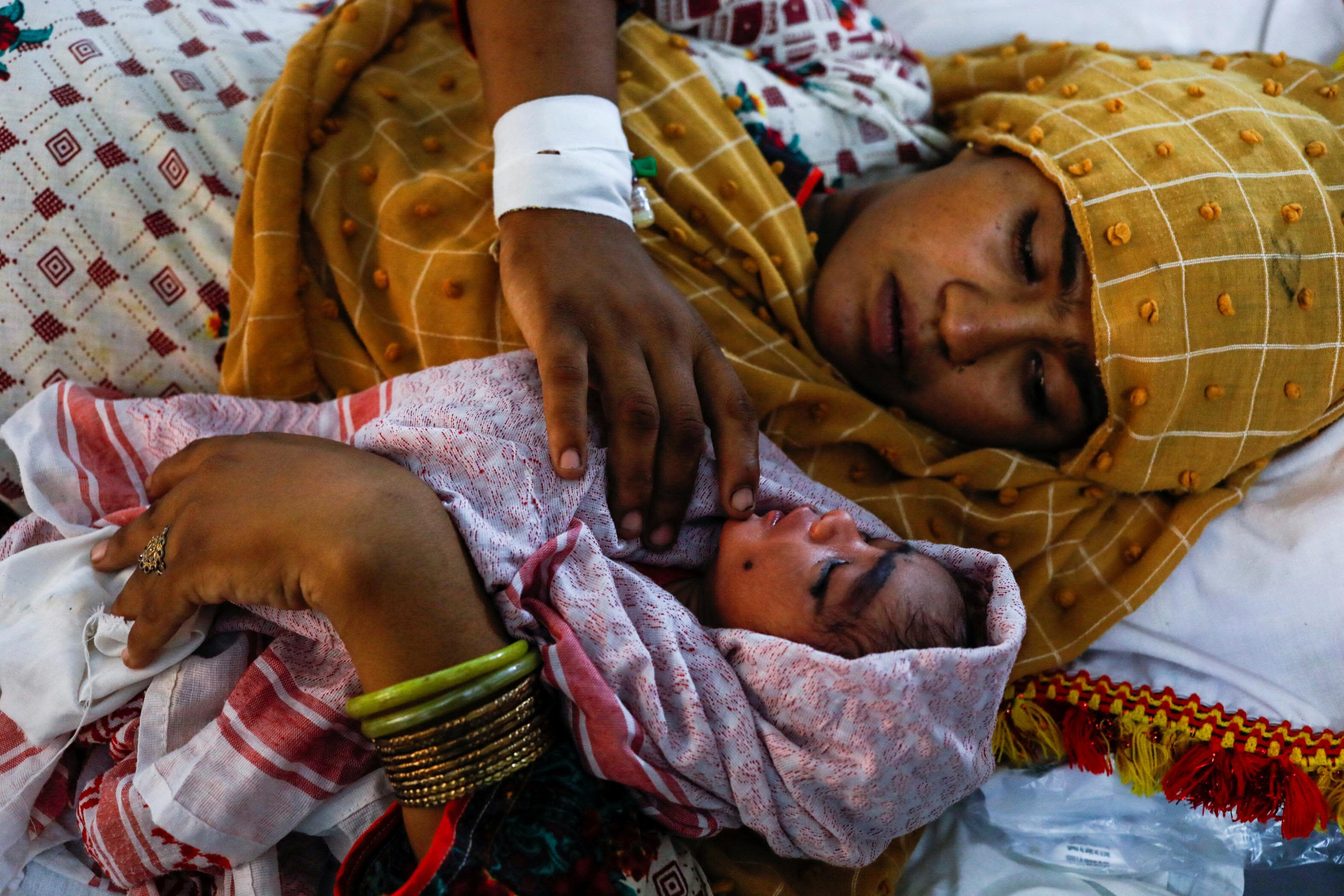
According to reports, the floodwaters have not only displaced families but have also disrupted communities across the affected areas. For instance, in Nowshera, herds of sheep were seen navigating through the floodwaters, illustrating the dramatic impact on both human and animal populations.
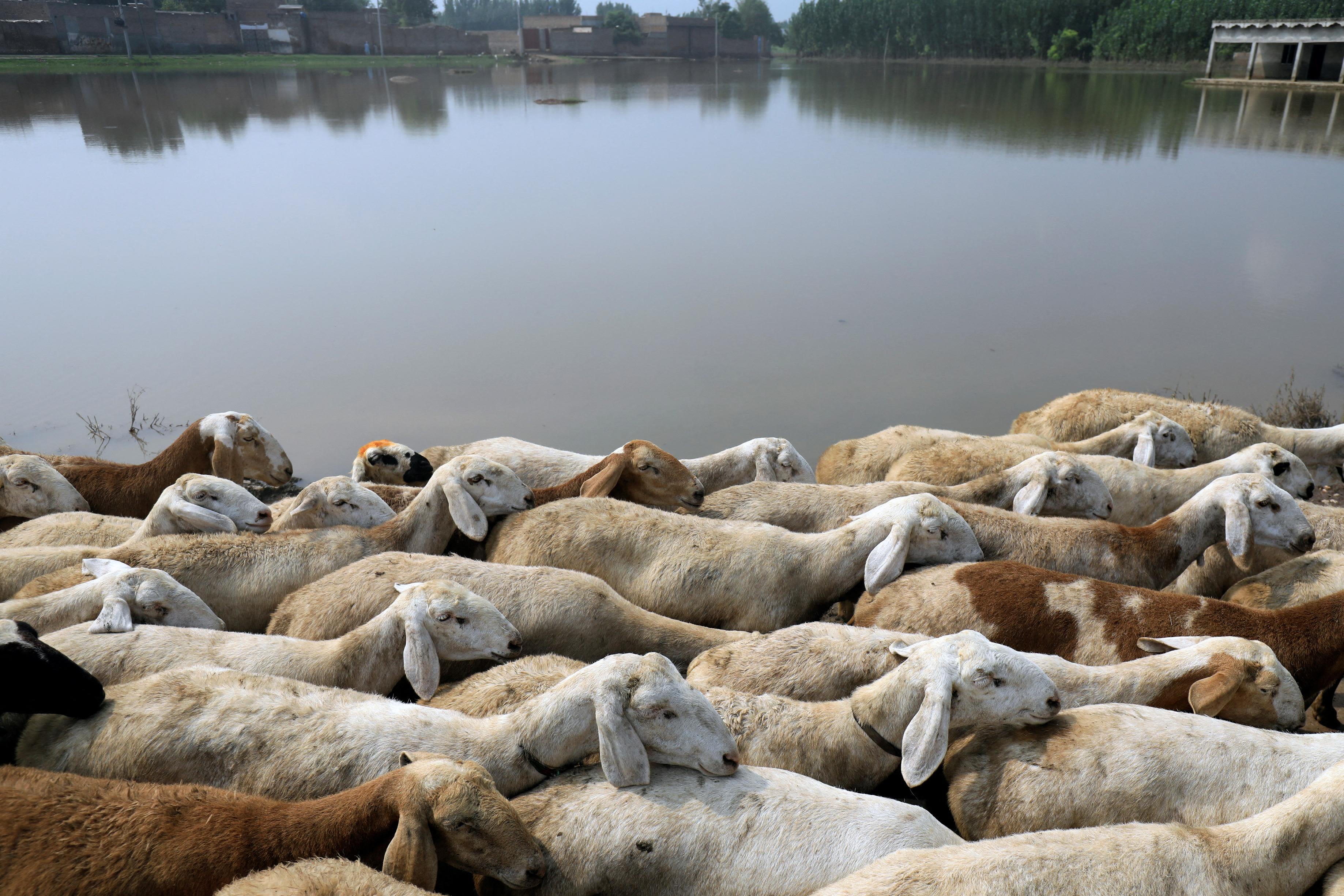
Children are among the most vulnerable, as seen in the Jaffarabad district where young ones are left to navigate difficult living conditions. This emotional toll weighs heavily on families who find it increasingly challenging to safeguard their loved ones.
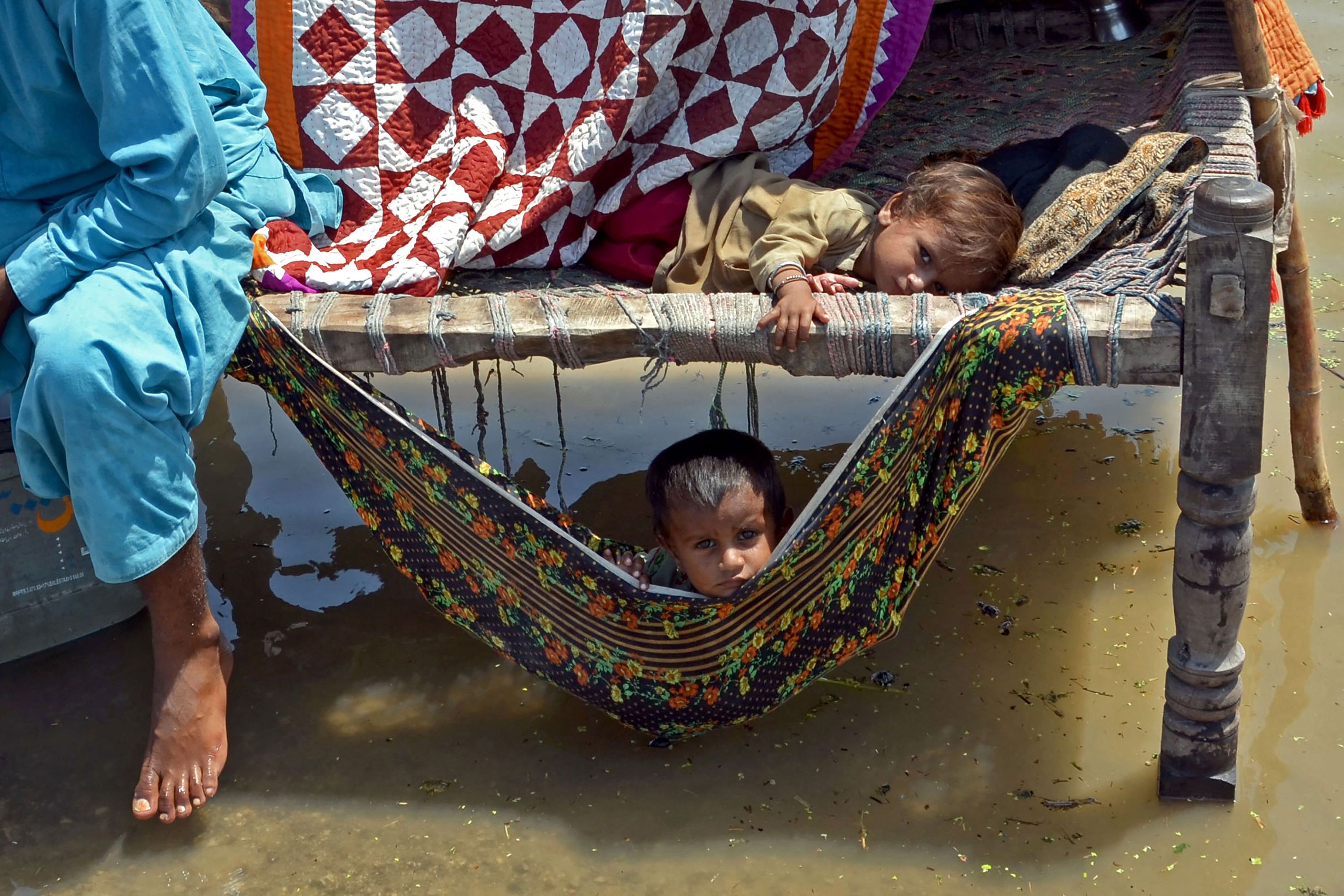
In Charsadda, groups of people waded through floodwaters, exemplifying the daily struggles faced by residents attempting to access essential resources. Additionally, schools have been transformed into temporary shelters for displaced individuals, highlighting the pressing need for immediate humanitarian assistance.
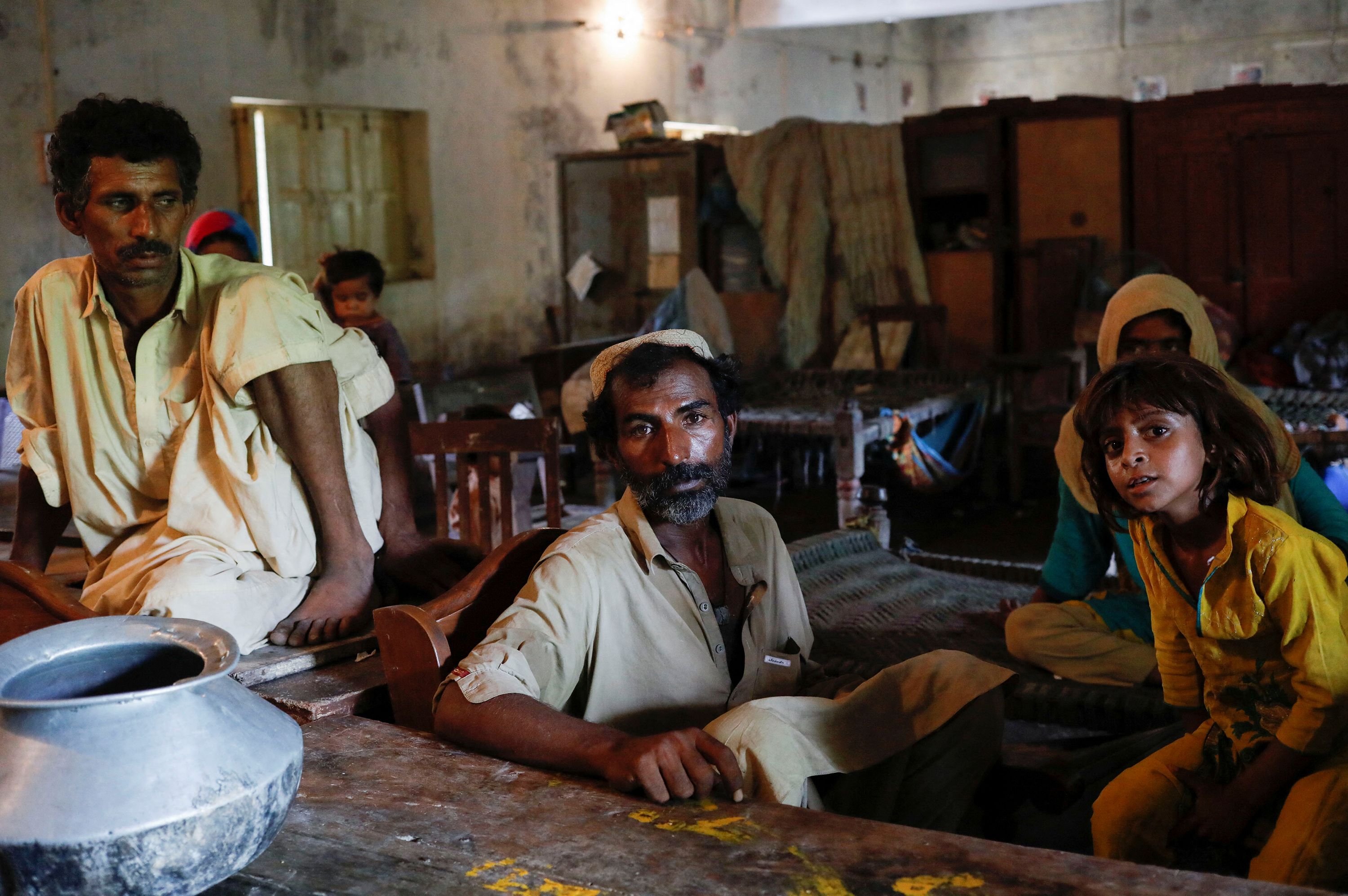
The challenges brought on by the floods can be intense, calling for global attention and response. As the situation continues to evolve, humanitarian organizations are mobilizing resources to provide for those affected and restore normalcy as quickly as possible.
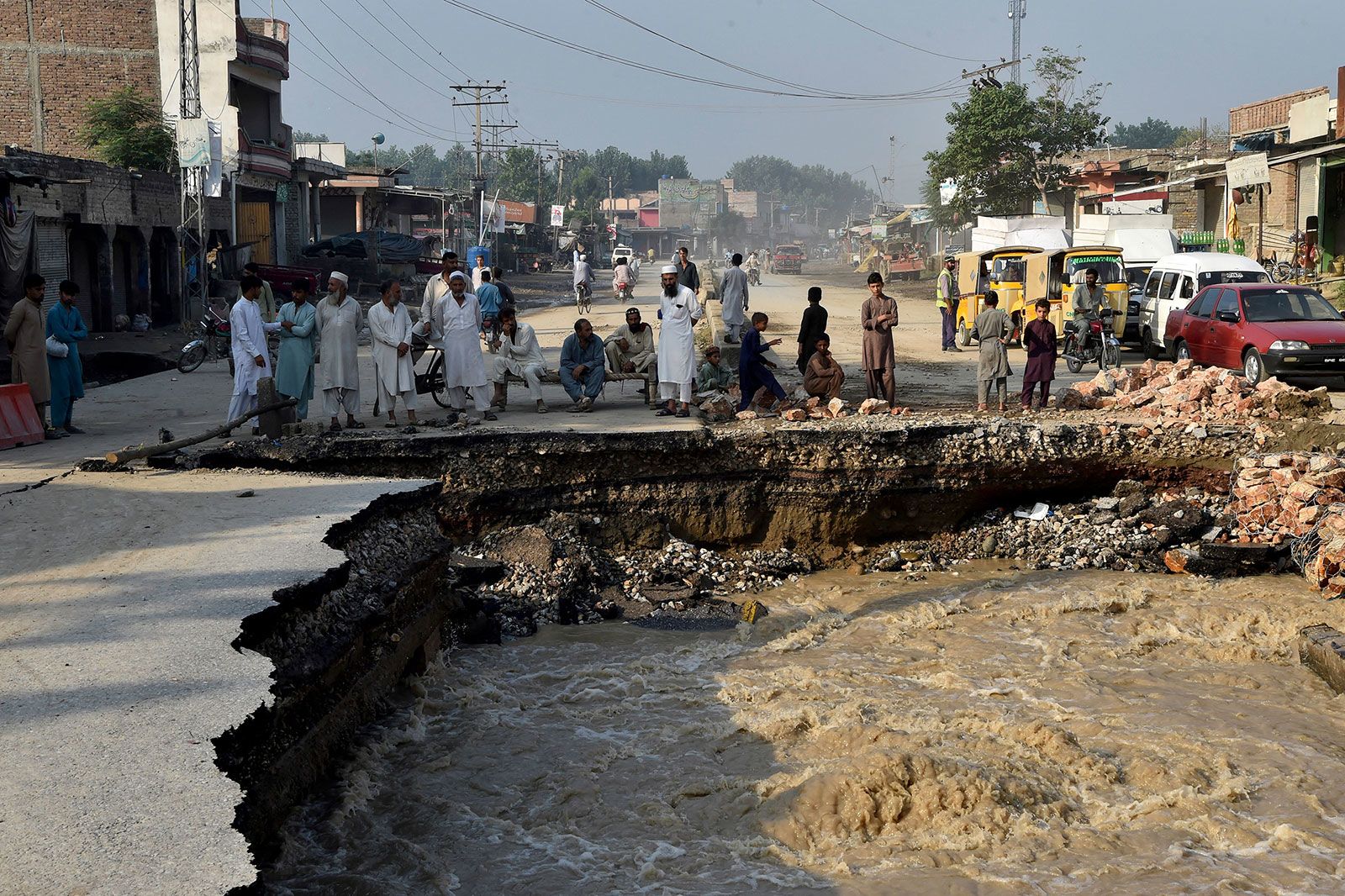
The scale of this crisis showcases not only the immediate peril posed by natural disasters but also the urgent requirement for sustainable approaches to manage future flooding risks effectively. Therefore, fostering global awareness and support is essential to navigate this humanitarian crisis.
